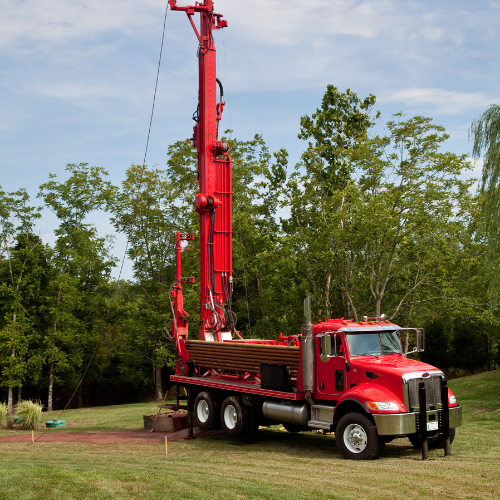Moving from the bustling cityscape of the Greater Toronto area to the serene countryside of the Georgian Triangle Area is an exciting transition. The Wasaga Beach, Collingwood, and Stayner areas offer a wide range of rural real estate from charming fixer-uppers to high-end luxury estates. No matter what your home-buying budget, there are some things you need to know about purchasing a rural property.
One of the big differences between town and rural properties is the move from municipal water and sewer to wells and septic systems. These vital components ensure access to clean water and efficient waste management when you live in the country. As a real estate broker specializing in this region, I’m here to guide you through everything you need to know about wells and septic systems to make your transition smooth and worry-free.

Understanding Wells
In rural areas like the Georgian Triangle, wells are the primary source of water for households. Here’s what you need to know about them:
Water Testing: Regular testing of well water is crucial to ensure its safety for consumption. Test your water whenever there’s a change in taste, odor, or appearance. It’s recommended to test well water at least once a year for contaminants such as bacteria, nitrates, and other pollutants. If you miss them, they can make you very sick.
Well Maintenance: Wells require periodic maintenance to ensure optimal performance. Schedule annual inspections by a licensed well contractor to check for signs of wear and tear, test the water flow rate, and assess the condition of well components such as pumps and pipes.
Dealing with Dry Wells: You may need to be a bit more careful about your usage if you’re on a well rather than town water. In rare cases, wells may run dry, especially during periods of drought or excessive water usage. If your well runs dry, consult a professional well driller to assess the situation. Solutions may include deepening the well, hydrofracturing, or exploring alternative water sources.
Power Outage Preparedness: Unlike municipal water systems, wells rely on electricity to pump water into the home. During power outages, you may lose access to water. Consider installing a backup generator or storing emergency water supplies to mitigate the impact of power disruptions.

Navigating Septic Systems
Rural real estate is usually situated outside of municipal boundaries so these properties rely on septic systems for waste disposal. Here’s what you need to know about septic systems:
Pumping Frequency: Septic tanks require regular pumping to remove accumulated solids and prevent system failure. The pumping frequency depends on factors such as household size, usage, and tank capacity. As a general guideline, septic tanks should be pumped every 3 to 5 years.
Proper Usage: To maintain the health and longevity of your septic system, practice responsible water usage and waste disposal habits. Avoid flushing non-biodegradable items, grease, chemicals, and excessive amounts of household cleaners down the drain. Additionally, distribute laundry loads evenly throughout the week to prevent overloading the system.
Inspections and Maintenance: Schedule periodic inspections of your septic system by a qualified professional. During inspections, the technician will assess the condition of the tank, drain field, and components, identifying any potential issues early on. Addressing minor problems promptly can prevent costly repairs or system failures down the line.
Emergency Preparedness: In the event of septic system malfunctions or backups, it’s essential to know how to respond effectively. Familiarize yourself with the location of your septic tank and drain field, and keep contact information for local septic service providers handy. Implement preventive measures such as installing effluent filters and maintaining vegetation-free zones around the drain field to minimize the risk of system failures.
Challenges and Solutions
Rural real estate purchases come with unique challenges, but with proper knowledge and preparation, you can overcome them:
Seasonal Variations: Be prepared for seasonal fluctuations in water availability and quality, particularly during periods of heavy rainfall or snowmelt. Install proper drainage systems and consider implementing rainwater harvesting techniques to mitigate the impact of seasonal changes.
Environmental Considerations: Protect the integrity of your well and septic system by practicing environmentally friendly habits. Avoid using pesticides, herbicides, and fertilizers near wellheads or septic components, as these chemicals can leach into groundwater and contaminate water sources.
Community Resources: Take advantage of local resources and support networks within the rural community. Attend workshops or informational sessions on well and septic system maintenance offered by local organizations or government agencies. Engage with neighbors and fellow residents to exchange tips, experiences, and recommendations for managing rural properties effectively.
Understanding the intricacies of wells and septic systems is essential for a smooth transition when you purchase rural real estate in the Georgian Triangle Area. By staying informed, proactive, and prepared, you can enjoy the benefits of rural living while ensuring the reliability and sustainability of your water supply and waste management systems. If you have any questions or need assistance with real estate in this area, don’t hesitate to reach out.
Welcome to your new countryside home!
